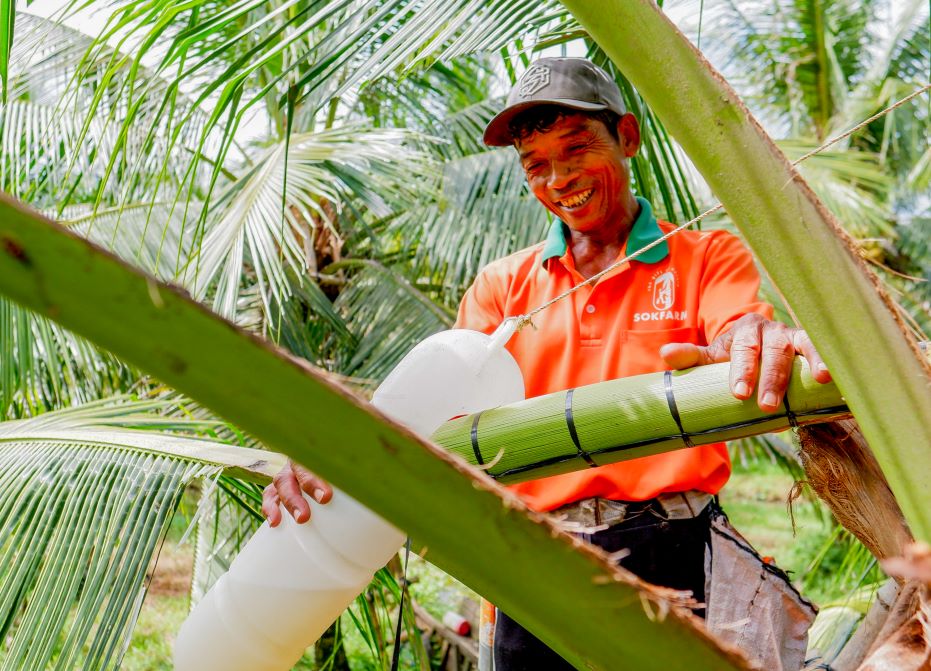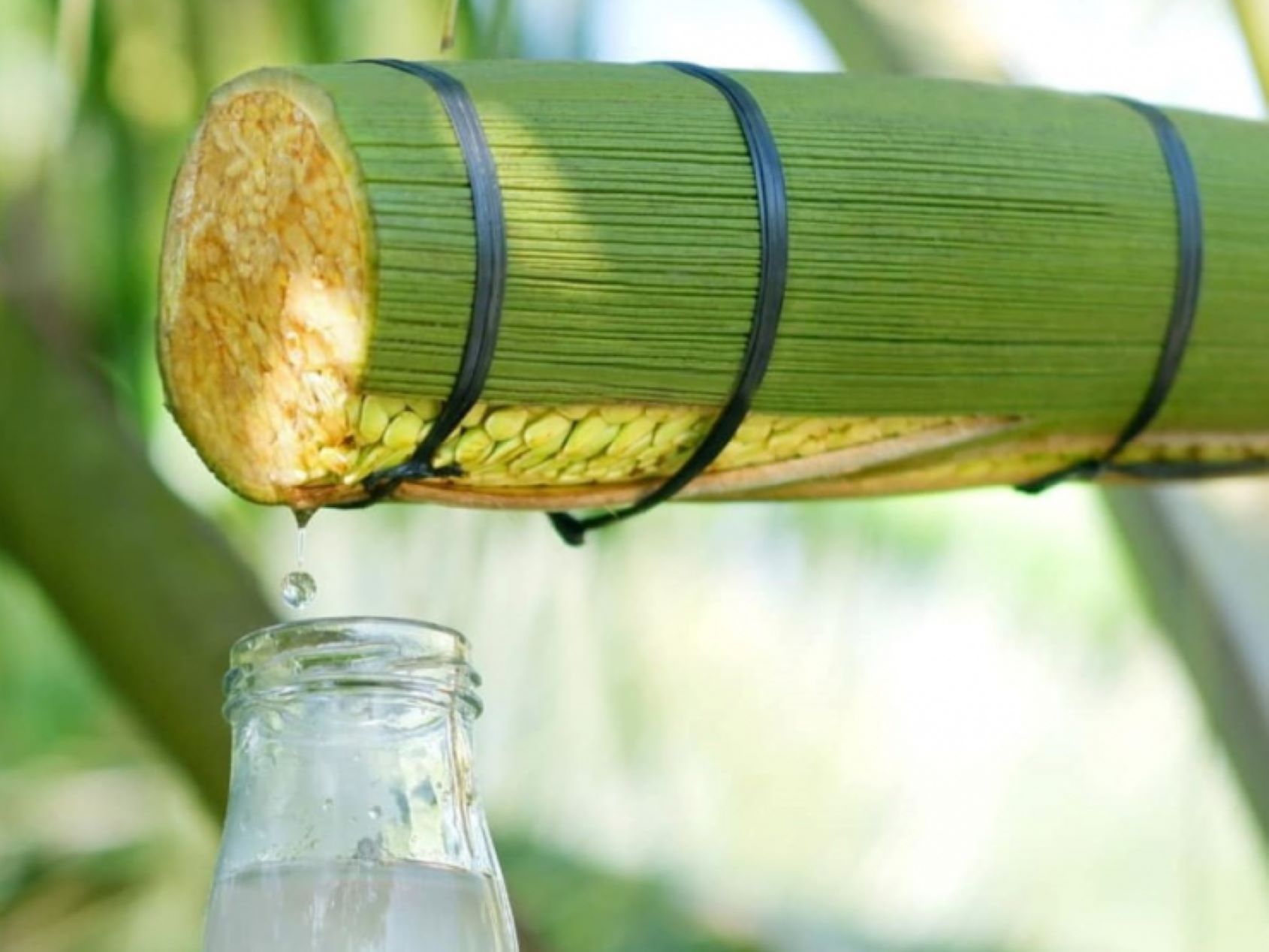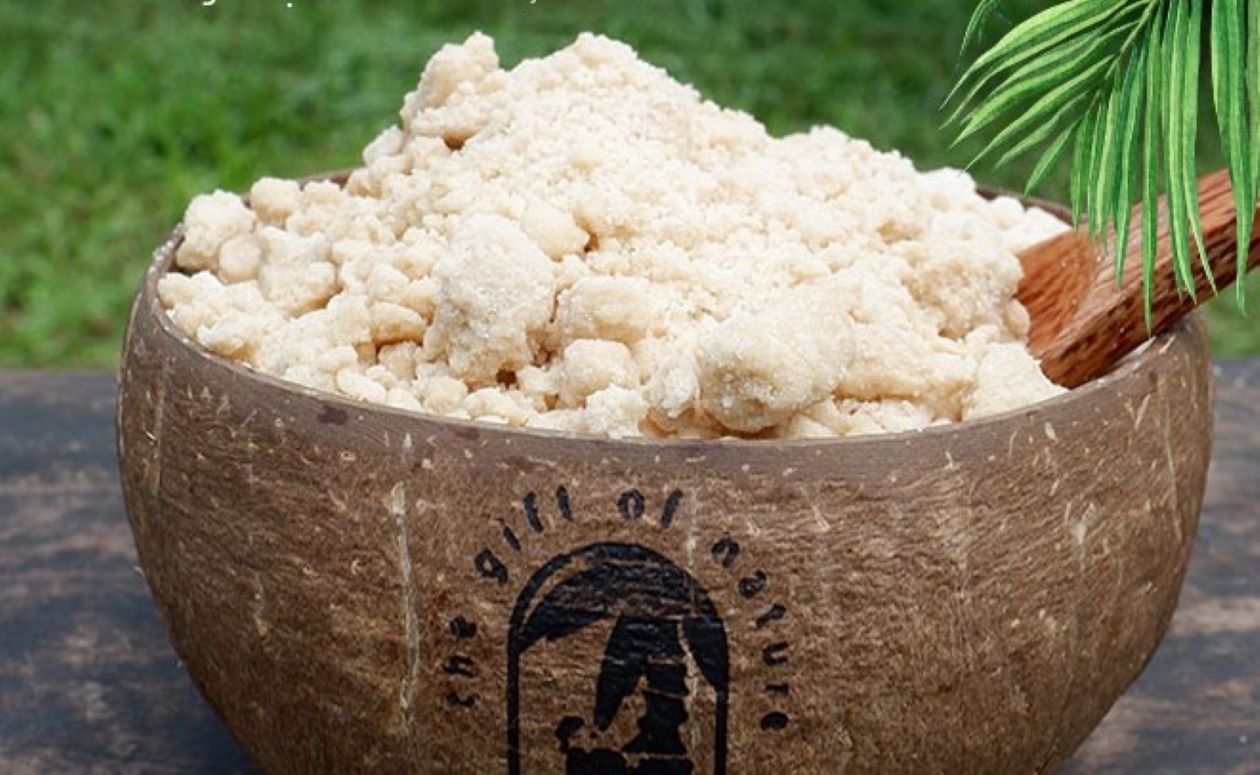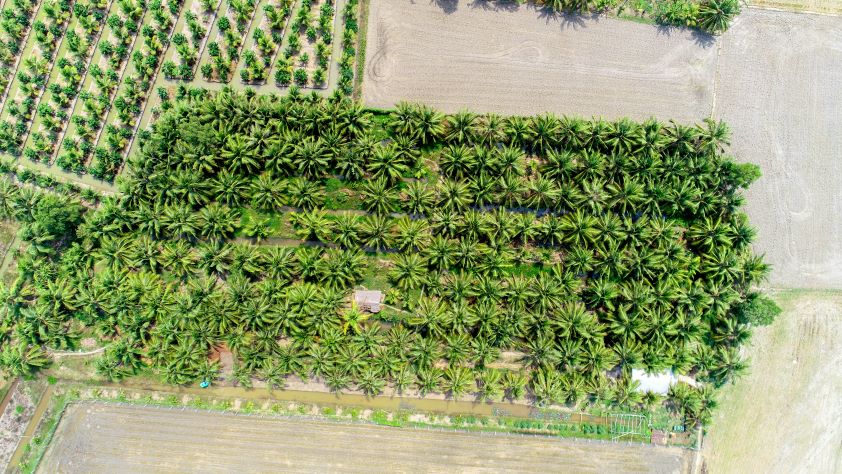Every day, Mr. Sang Sa Ra in Tieu Can district (Tra Vinh province) collects honey from coconut flowers. Currently, with 3,000m2 of coconut trees, he collects about 40 liters of honey/day, helping his family earn an income of 8-12 million VND/month.
“Previously, growing coconuts for fruit only brought me an income of 1-2 million VND/month, I had to do many other jobs to make ends meet. Now, I just focus on taking care of coconuts to get honey, then sell it to the company to produce drinks, spices... Thanks to that, life is much better than before," said Mr. Sa Ra.
According to Mr. Sa Ra, his locality is often affected by saltwater intrusion, so many coconut areas have dry fruits, shriveled fruits, and few fruits... reducing productivity. However, the trees still flower normally. "Collecting nectar from flowers not only avoids the effects of drought and saltwater intrusion but also helps increase income and the value of coconut trees," said Mr. Sa Ra.

Similarly, for more than a year now, Mr. Thach Chal Do's family in Phu Can commune (Tieu Can district, Tra Vinh province) has also had a stable life from growing coconuts for honey instead of fruit. "Currently, with 40 coconut trees, the income is more than 15 million VND/month, 3-5 times higher than harvesting coconuts," said Mr. Do.

Tra Vinh Sokfarm Company Limited CEO Pham Dinh Ngai said that in 2018, in the context of severe drought and saltwater intrusion, combined with low coconut prices, he and his wife thought about collecting nectar from coconut flowers instead of taking the fruit as is traditional.
“Coconut trees that are 3 years old or older can produce honey and maintain a steady yield for 20-30 years. This type of tree flowers all year round so honey can be harvested continuously. This way, people can still keep the trees and create a livelihood,” said Mr. Ngai.
Mr. Ngai said that up to now, his unit has cooperated with 35 local households to build a raw material area of over 20 hectares of coconuts that meet international organic standards. On average, each month, 80 tons of fresh coconut nectar are imported, producing 20 tons of finished products. And each year, 240 tons of finished organic materials are produced for the market.
"In the near future, we will expand our raw materials and transfer honey collection techniques to farmers, after which the company will purchase them back from them. However, farmers must commit to organic farming that meets international standards," said Mr. Ngai.

In recent years, many provinces with large coconut growing areas such as Tra Vinh, Ben Tre, Soc Trang... have been affected by drought and saltwater intrusion, affecting people's lives, production and income. Therefore, switching from growing coconuts for fruit to collecting honey is considered a suitable direction, adapting to climate change.

Mr. Nguyen Van Dac - Head of the Department of Agriculture and Rural Development of Cu Lao Dung district (Soc Trang province) said that in addition to aiming to officially export fresh coconuts to China, the locality also aims to develop coconut cultivation for honey and has also built a pilot model. If successful, the remaining areas will be expanded to contribute to increasing product value and income for local people.











